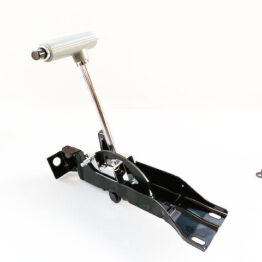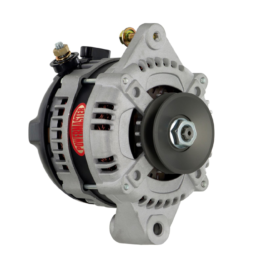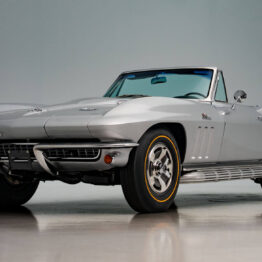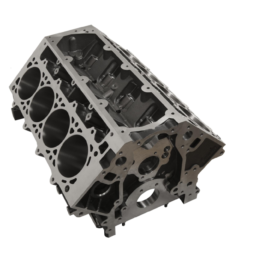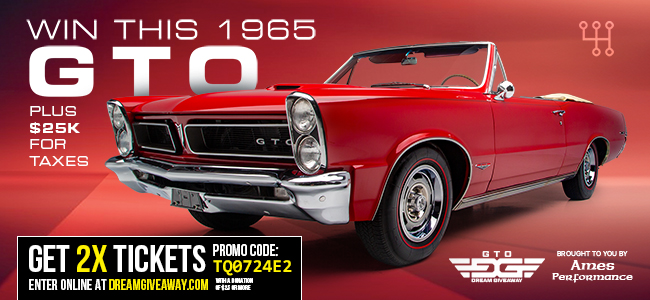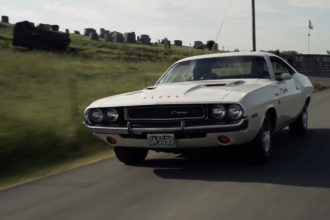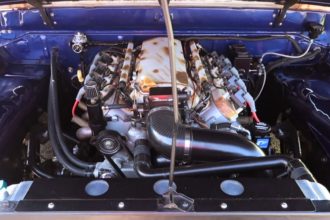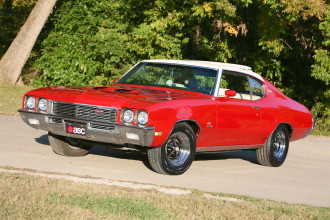Well, the attitude from General Motors has certainly been on the rise in recent years, depicting record-setting profits and margins, making the company more valuable than ever. However sales of some of its keynote models have been down in recent years, including that of the Chevy Cruze, Camaro and various others.
Add in the fact that GM’s new direction will be a slew of electric-powered and/or autonomous vehicles, and you can say that the atmosphere has significantly changed. General Motors CEO, Mary Barra, is redirecting the company to be leaner, meaner and apparently, greener.
Over the course of the next several years, petrol-powered vehicles will be phased out, as electric and autonomous cars will go in their place. It’ll start with more mainstream, passenger sedans and SUVs, and could ultimately lead to electric-powered Camaros and Corvettes — we’ve already seen it with this year’s E-COPO Camaro while at SEMA 2018.

For the time being, General Motors has just made official announcements regarding plant closings for 2019, that will “help shape the way” they do business in the decades to come. As of now, the Chevy Cruze, Cadillac CT6 and Buick LaCrosse will all be getting axed — and the plants they were manufactured in, Lordstown, Oshawa and Detroit-Hamtramck. Two engine plants, one in Maryland and another in Michigan will shutter next year as well.
The original plan for this article was to merely pass on this news of what was already written on various platforms, elsewhere. But as this subject hits so close to home, literally and figuratively, I decided to change direction. The truth of the matter is, this sucks for those it directly effects.
Being based not 30 minutes from the Lordstown plant, the impact that the plant closing will have on our area certainly won’t be a beneficial one. Located in what was once “Steel City” of Youngstown, Ohio, the opportunities in the area are slim as it has never really recovered since the mills closed some forty years ago.
Opening in 1966, Lordstown was the plant that saw the birth of many ’60s Chevy Caprices/Impalas, the Vega, Monza, Cavalier, Cobalt, Cruze and their Pontiac counterparts. Lots of Chevy and GMC vans rolled off the Lordstown line in the ’80s and early ’90s, and every 1967 Firebird ever built came out of Lordstown. Many ’68s and ’69s, did, too.
Part of the reason why the Cruze will cease production, was the lack of sales as the buyer’s market has shifted towards trucks and SUVs, and rightfully so as gas prices have dropped in recent years and the economy has picked up. Toss in the fact that the new 35 MPG regulations from six years ago have created a slew of fuel-efficient cars in the marketplace, and it was difficult for the current Cruze model to stand out, especially in a sea of similarly sized and similarly styled vehicles.
I also believe that if perhaps Chevrolet had offered some type of serious tuner version of the car (300+HP, 6-speed, AWD) at some, point even during the previous generation, that there would have been more general interest in the vehicle. At the very least, it would have helped bring younger buyers in to have a look — and ultimately lead some to purchase a lesser version of the car. However, General Motors didn’t even bother with a proper concept.
The recently released CT6 and LaCrosse offered full-sized luxury, but the market is no longer there. Nobody saw the value in a big sedan, when for roughly the same money, you could just buy a large SUV with all of the luxury features you actually want, need or even care about. Plus, you can tow your race car with it, too.
That brings me to my next point, just how ready are we, really, from being completely dependent on electric vehicles? You can make the case for Tesla, or for a few models like the Volt, Bolt and short-lived Cadillac ELR — but essentially replacing your entire line of current models, or implementing electric motors in them entirely? How do you go from making little to no electric cars, to mass producing them across the product line in a matter of 2-3 model years?
I guess if your goal is to be forward-looking and sink Tesla in the process, it makes sense, but how will traditional buyers react? Are the electric batteries destined for these cars as reliable and turnkey as we need them to be?
Even most of those on the cutting edge of cool, technology and progressivism largely still drive gasoline-powered cars. Let’s be clear; nobody is questioning the performance potential of an electric car, because the Tesla Roadster was outrunning its Lotus counterpart 10 years ago, and the Model S sedan was kicking around Hellcat Challengers back in 2015.
But more to the point, how will that effect the aftermarket auto industry? You just single-handedly wiped out any attempt to even apply exhaust, intake and fuel system upgrades, and a giant electric battery doesn’t require the use of camshafts, cylinder heads or, well, any real moving parts. I suppose that only leaves in wheel/tire upgrades, brake manufactures and suspension tuning.
What about the soundtrack, though? Is eerie silence something we can get accustomed to, especially in a performance car? Is the mass population ready to sit back, relax, and let their SUV handle the driving? I’m not. Part of what makes a muscle car, or sports car, or a V8 pony car is its voice — which an electric example will never have. See the aforementioned Electric COPO and the entire rage of Teslas. If you buy a Corvette and plan on putting it into Autonomous Mode, you’ve bought the wrong car.
Making our compact SUVs or eco-box sedans fully electric doesn’t bother me, however, me potentially forgetting to plug my 2023 Camaro in at night does. When I do remember, that’ll be reflected in my Ohio Edison bill every month. I also suppose that’ll mean whatever brick and mortar stores or restaurants are left by then, will have to ramp up the amount of their plug-in ports so I can make sure I don’t run out of electricity on the way home with my wife and kids.
Which means the stores/restaurants will have to buy them and foot the electric bill, which also means the cost of my dinner will go up. But I digress.
But hey, at least I’m not buying petrol (of which we still have enough of for at least a few more centuries), and I’m being ecologically friendly, right?
Which also makes me ask the next question, if everyone eventually converts to electric cars for their daily commute, at what point does Big Brother implement taxes, regulations and ultimate seizure of those barbaric, gas-powered cars from days gone by? Will it eventually become illegal to drive your old Trans Am down the road? Will we be relegated to either turning them in for a tax credit, or will we only be legally allowed to enjoy them on certified race tracks and car events?
At what point do we draw the line in the sand, and tell them we’ve had enough “green” in our lives?

Rick Seitz is the owner and founder of AutoCentric Media, the parent company to Timeless MuscleCar Magazine, and has a true love and passion for all vehicles. When he isn’t tuning, testing, or competing with the magazine’s current crop of project vehicles, he’s busy tinkering and planning the next round modifications for his own cars.


